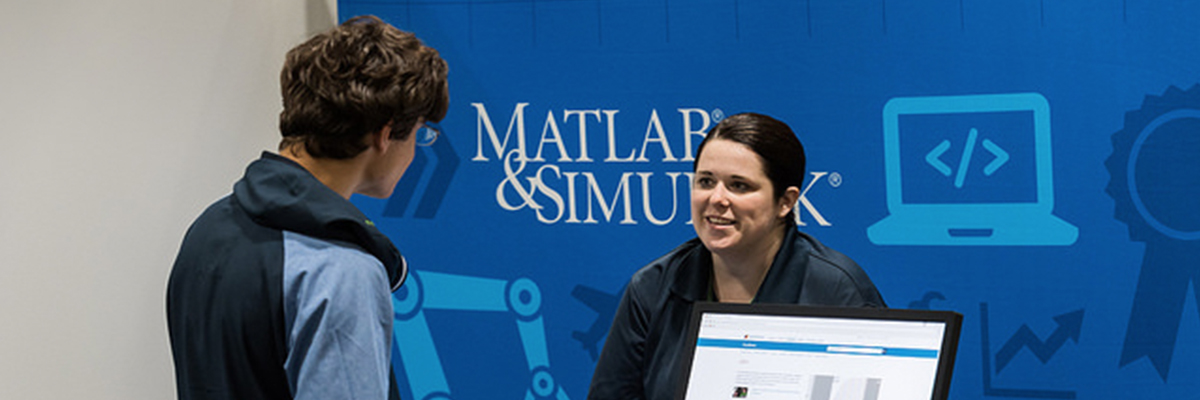MathWorks, iGEM and Synthetic Biology
Just like every journey, from its inception to where it is today, iGEM has found some amazing friends in the shape of partners who have supported the iGEM Competition and one of them is Mathworks.
Written by Mathworks, Amy and Hassnain
Picture Credits: Mathworks, iGEM Foundation and Justin Knight
From being a course during the Independent Activities Period to becoming the global pioneer in Synthetic Biology, iGEM has grown tremendously since 2003. Over 340 teams from more than 45 different countries are participating in the iGEM Competition this year. Just like every journey, from its inception to where it is today, iGEM has found some amazing friends in the shape of partners who have supported the iGEM Competition and one of them is MathWorks.
MathWorks is the leading developer of mathematical computing software. Engineers and scientists worldwide rely on their products such as MATLAB, SimBiology, and Simulink for the discovery, innovation, and development in a wide range of industries, an important one of which is Synthetic Biology. Moreover, these products are also fundamental teaching and research tools in the world’s universities and learning institutions.
The shared focus on research and education of both the iGEM Foundation and MathWorks, and over 10 years of partnership has proven pivotal for the research conducted by iGEM Teams and promotion of the multidisciplinary nature of Synthetic Biology.
For the past 10 years, MathWorks has been providing free MATLAB Software License and technical support to all iGEM teams.
If you go through iGEM projects, you’ll hardly come across one which does not include Modeling. It was only appropriate to start our conversation on the role of mathematical modeling in the global scheme of Synthetic Biology, since MathWorks is the global leader in the field.
“We are constantly amazed by the nature and the impact of projects created by teams in such a relatively short amount of time.” - Fulden Buyukozturk, MathWorks
Modeling guides the rational design of genetic modifications and enables synthetic biologists to better analyze and predict system behavior prior to fabrication. For example, models can let you simulate how the system will behave when you put different sub-systems or components, which you know the behavior of, together in a particular manner. The results are often counter-intuitive. Models can also help identify which parameter regions will result with the desired system outcome. Techniques such as parameter estimation, sensitivity analysis, and bifurcation analyses are crucial for the development and use of models that are representative of the biological system. Mathematical modeling and experimentation go hand in hand in synthetic biology as it does in engineering disciplines. As advances in molecular biology and experimental techniques enable scientists to create complex synthetic biology systems, the need and importance of mathematical modeling will be even more prominent. One obvious challenge with that is the demand for strong modeling and simulation skills in graduating students. iGEM is key in responding to that challenge by providing an important opportunity for students to be trained in mathematical modeling, among other skills, while working to solve real-world problems.
iGEM teams benefit greatly from the resources provided by MathWorks not only during the competition but after it as well. Winning teams who have used MathWorks products in their projects have the opportunity to be featured on The Winner’s Circle and have been interviewed in videos on mathworks.com. MathWorks is also looking to work with more current iGEM teams on their projects, from initial stages to up until the Giant Jamboree, and build long-standing relationships.
The online resources provided by MathWorks are nothing short of a treasure for iGEM participants and alumni working on new projects after the competition such as videos, documentation, MATLAB Central File Exchange and technical articles. The work done by teams and researchers have been using MathWorks’ tools have been a constant source of inspiration to shapes up the resources they develop. Anyone interested in learning more can check out the biological sciences and SimBiology product pages and should feel free to reach out to them with any questions. Staying true to their goal of providing the best resources to the users, MathWorks also conducts workshops as per user requests.
Competitions like iGEM give real-world experience to students allowing them to build skills that can be applied to future careers. MathWorks tools are being used across multiple engineering and science disciplines, including computational biology, both in industry and academia. Having access to industry standard tools like MATLAB, Simulink, and SimBiology can help students have a smooth transition from the classroom to various careers.
Being engaged with scientists and engineers on a project level provides MathWorks an opportunity to understand workflows and requirements better, and shape their tools to meet scientists’ needs. With the After iGEM program, it provides a great opportunity to connect former iGEM participants with MathWorks and hear what they have been doing beyond the competition.
The iGEM Digest is a collection of stories from the iGEM Community. More information on the iGEM Digest can be found here: after.igem.org/page/igem-digest






